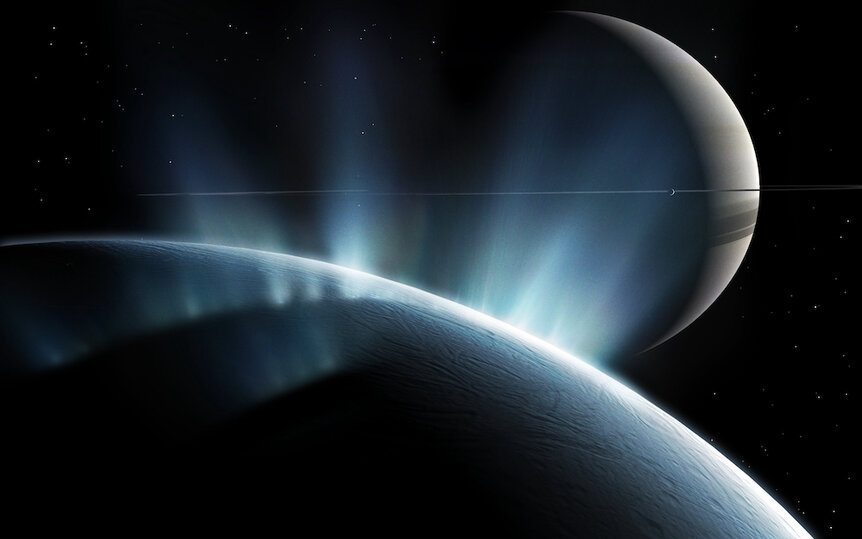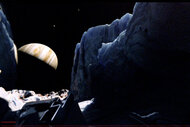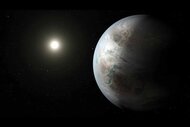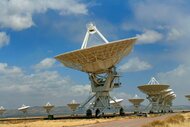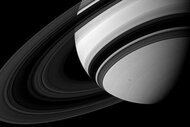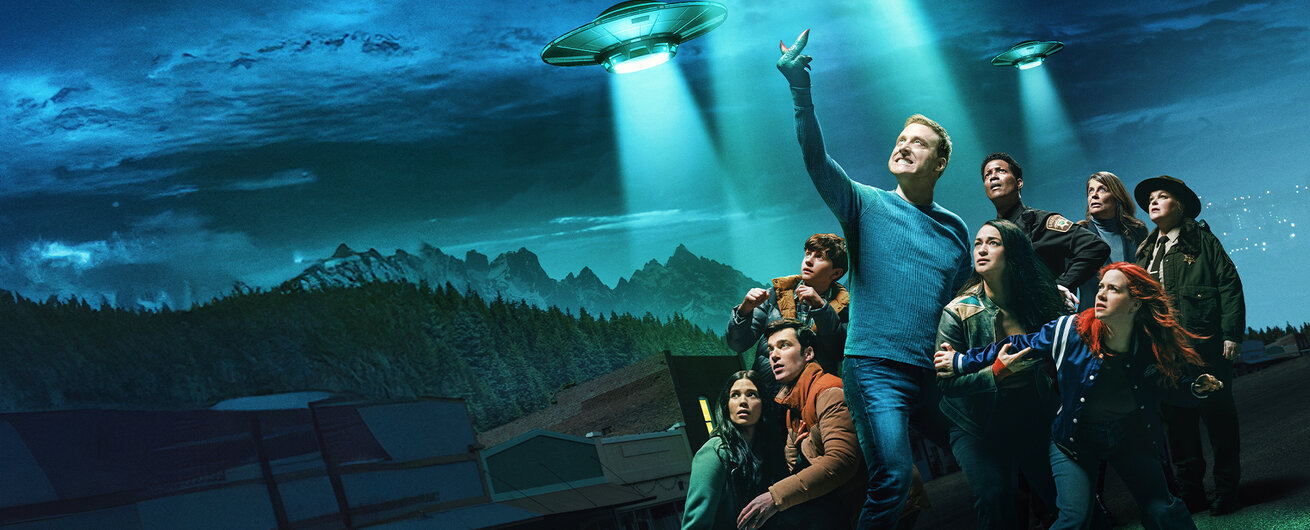Create a free profile to get unlimited access to exclusive videos, sweepstakes, and more!
Poison Gas Could Be the Key to Life on Saturn's Moon Enceladus
Aliens might swim in poison seas.
If SYFY’s own Resident Alien (streaming now on Peacock) is to be believed, then the universe is filled with intelligent alien species, and they mostly look like us. Sure, they might be hairless or have large, dark eyes and spindly limbs, but they’re basically human with a fresh coat of paint. Evolving creatures which look, behave, and think like us would probably require a similar environment with similar evolutionary pressures to the ones we grew up in. When and if we finally do find alien life, it’s probably more likely to come from a weird world and look pretty different from us.
In our own solar system, some of the most promising locations for extraterrestrial life are the icy ocean moons of Jupiter and Saturn. Back in 2010, the Cassini probe flew through the Saturn system and studied the small, frozen moon Enceladus. There, Cassini snapped pictures and took samples of huge jets of water streaming from the moon’s South Polar region. Now, new analysis of Cassini’s findings has revealed a particularly useful and often deadly chemical compound in the waters of Enceladus.
There Is Cyanide Spraying Out of Saturn’s Moon Enceladus
Finding water plumes on Enceladus was already a hugely exciting discovery – the presence of liquid water is step one in pretty much any recipe for making life – but astronomers have found a number of organic compounds in the water which could feed any living populations hanging out there. More than a decade after Cassini changed our understanding of Enceladus, astronomers have confirmed the presence of hydrogen cyanide in the waters of Enceladus, according to a new study published in the journal Nature Astronomy.
RELATED: Saturn’s Moon Enceladus Has All the Ingredients for Life
For humans, hydrogen cyanide is a deadly poison. It prevents the body from effectively taking up oxygen and can be quickly fatal when exposed. A few billion years ago, however, it may have been critical for the emergence of life on our planet. Its presence in the subterranean ocean might mean that Enceladus has conditions similar to those on Earth when life arose here.
“Our work provides further evidence that Enceladus is host to some of the most important molecules for both creating the building blocks of life and for sustaining that life through metabolic reactions. Not only does Enceladus seem to meet the basic requirements for habitability, we now have an idea about how complex biomolecules could form there, and what sort of chemical pathways might be involved," said lead author Jonah Peter, in a statement.
Hydrogen cyanide is reactive, and its composition makes it useful for building amino acids which form the building blocks of life as we know it. In addition to hydrogen cyanide, scientists have also found evidence of methane production and oxidized compounds, both of which could provide robust energy sources for any alien lifeforms.
RELATED: JWST Reveals 6,000-Mile Water Plume Blasting From Enceladus
“If methanogenesis is like a small watch battery, in terms of energy, then our results suggest the ocean of Enceladus might offer something more akin to a car battery, capable of providing a large amount of energy to any life that might be present,” said co-author Kevin Hand.
Of course, that doesn’t mean that life exists on Enceladus. If scientists had confirmed that, it’s the only thing we’d be talking about. But it does mean that Enceladus has the right sorts of chemistry and chemical pathways to facilitate the emergence of life and support that life once it shows up. If there aren’t alien microbes swimming those subterranean seas, it might just be a matter of time.
While we’re waiting, catch up on the first two seasons of Resident Alien, streaming now on Peacock.




